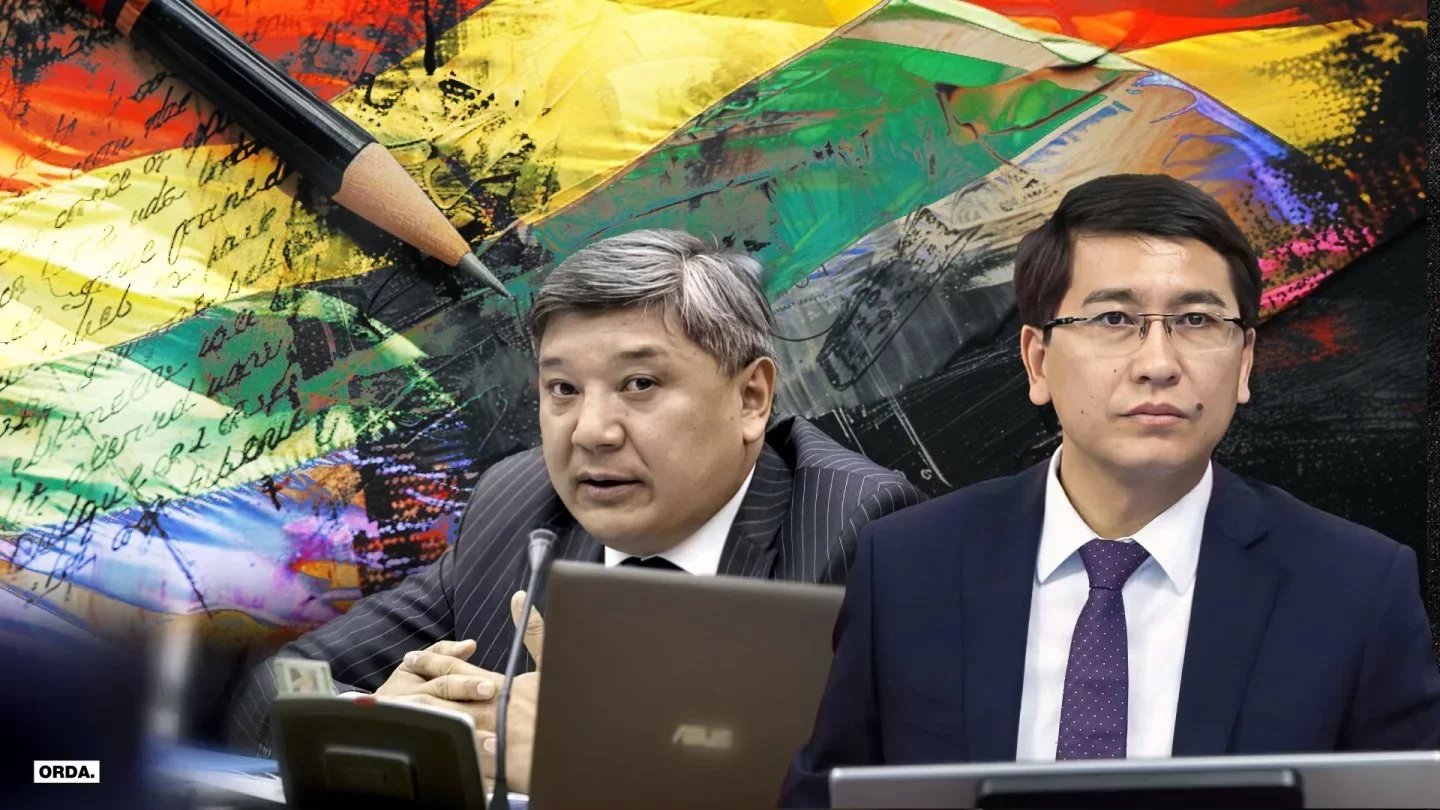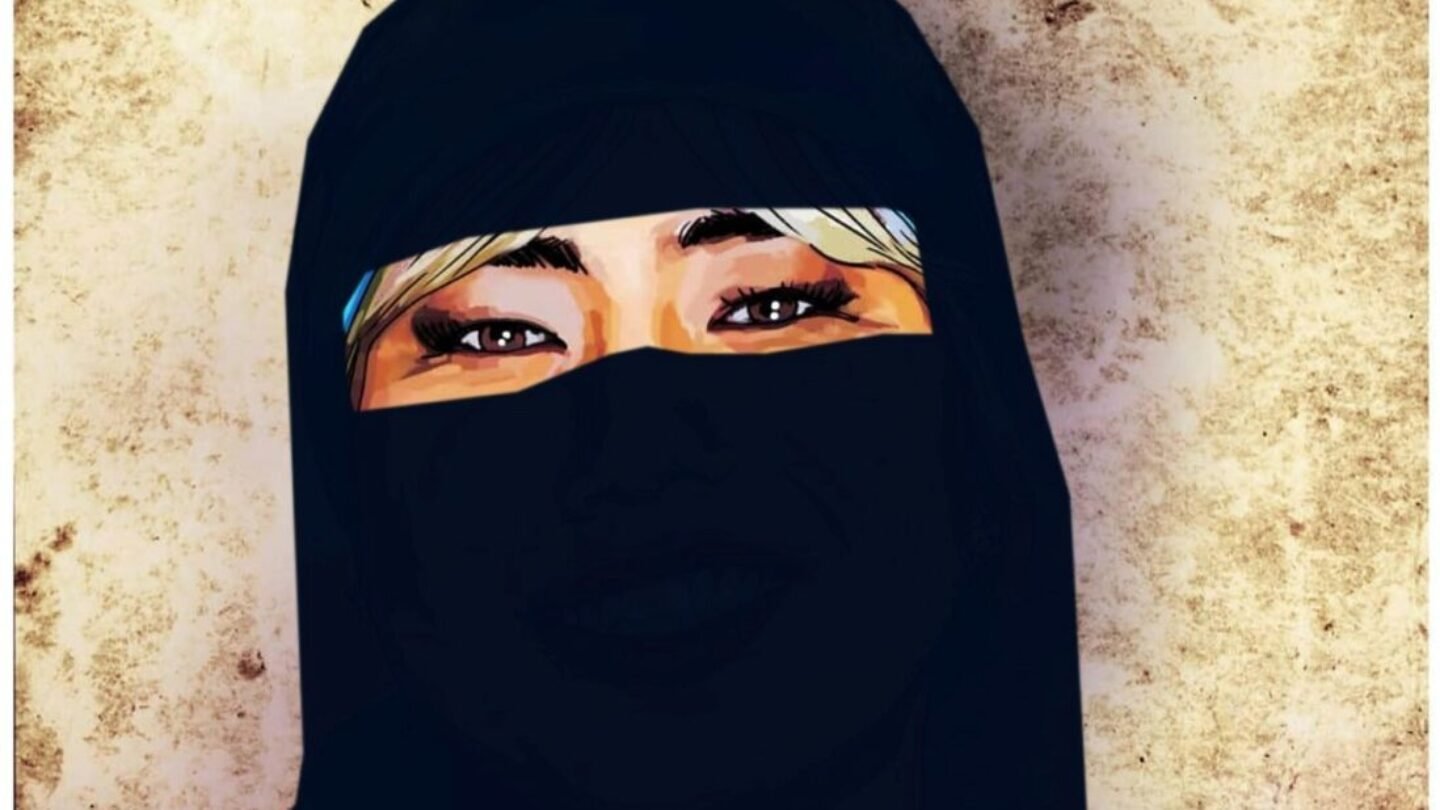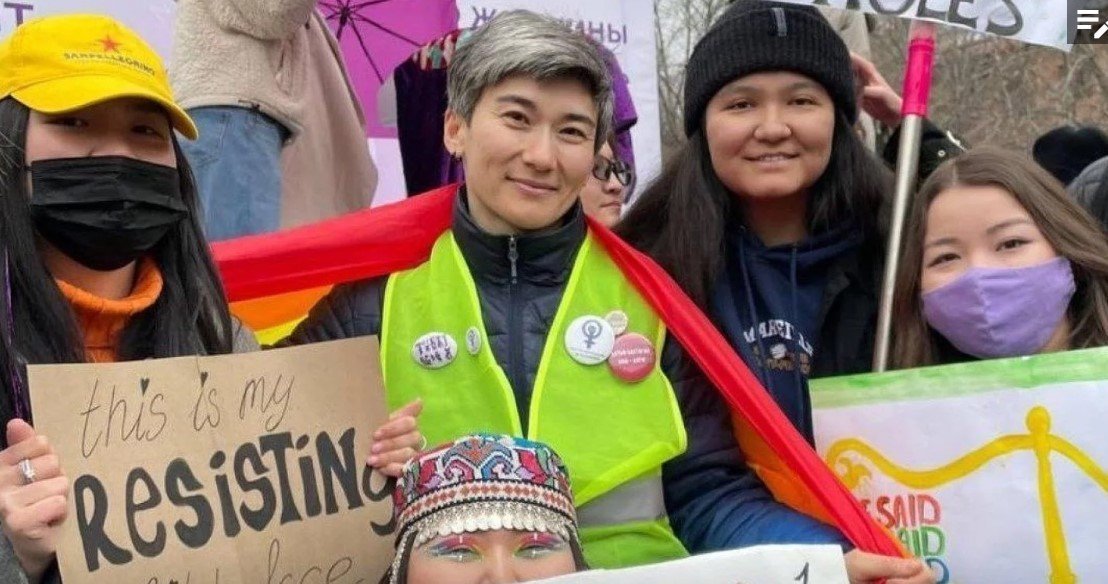Deputies Once Again Concerned about LGBT+ Despite Other Problems
 Orda
Orda
A new amendment to the law "On Mass Media" has been proposed by two deputies from the AMANAT party: Askhat Aimagambetov and Zhanarbek Ashimzhanov. Aimagambetov is the former Minister of Education. He is currently the chairperson of the Committee on Socio-Cultural Development of the Majilis. Zhanarbek Ashimzhanov is a member of the aforementioned committee.
They have put forward a proposition to ban the media from writing about LGBT+ propaganda. Orda.kz has spoken to experts and community representatives about what they think the real reasons for the amendments are and found out why they are violations.
The amendments provide for a severe punishment for the media — up to the deprivation of a license. The deputies explained that this does not concern banning the information as such. The ban namely applies to "propaganda showing same-sex relationships as being better than traditional relationships."
Meanwhile, it remains unclear who will decide what is propaganda and who is engaged in it in Kazakhstan. The attitude towards people of non-traditional sexual orientation is indeed not ideal. Society, family, and sometimes loved ones exert pressure.
Kazakhstan VS LGBT+
Political strategist and political scientist Dina Shaikhislam recalled that the idea of restricting information about the LGBT+ community in the country is not new. Former Majilis deputy Bekbolat Tleukhan, who moved to Türkiye after the January Events, proposed banning LGBT propaganda In 2021. Tleukhan was known for being an ardent advocate of polygamy and Islamic values.

In 2022, the director of the film "Kelinka Sabina", Nurtas Adambay, began a campaign against the cartoon "Buzz Lightyear". He saw the cartoon as defiling "traditional values". The Ministry of Culture would later ban the cartoon. In 2023, athlete and Majilis deputy Ardak Nazarov again raised the issue of banning LGBT+ propaganda, as "... it contradicts our worldview. And we all know very well that the international organizations of the West are behind this."
Distraction Tactic
Expert Shaikhislam sees two main reasons why this is periodically brought up in higher political echelons.
Firstly, it is the fight against foreign organizations, NGOs and media independent of the state. They cannot be forced to publish what the state needs or silence anything, as they are engaged in exporting free values: human rights of all people of all nations and minorities, social justice, freedom of speech and democracy - all that is not welcome in autocratic societies. But you can't directly campaign against 'democracy', 'freedom of speech' or 'human rights' — the people will be against it. Therefore, they begin to campaign against 'LGBT propaganda', which, in fact, are these human rights, freedom of speech, and democracy wrapped in a different package. But our person is not interested in such trifles because LGBT representatives in Kazakhstan are not considered to be full-fledged citizens and people in general, like women in many cases, Dina Shaikhislam believes.

The second point, according to Dina Shaikhislam, is distracting the population's attention from more pressing matters.
We have several areas flooded — people were left without a roof over their heads, property, livestock. This is a national emergency. And, it would seem, what does LGBT have to do with it? Or terrible cases of domestic violence against children and women. What does the cartoon have to do with it? These are good old distraction tactics. The most ridiculous narrative is working in Kazakhstan: covering a monument, because it's Uyat (Kazakh word that means shame - Ed.), campaigning against a cartoon, challenging a rainbow and toys, opposing masks. This indicates the level of the intellectual development of the passive (passive voter), as such topics bring about more engagement and emotions than the inability of the state apparatus to effectively deal with the problems of floods in spring, forest fires in summer, numerous accidents at thermal power plants in winter, widespread violence against women and children, etc., Shaikhislam says.
A similar opinion is shared by Mutali Moskeu, the creator of Kazakhstan's first website for LGBT teenagers.
RMDR: The website was available for a couple of weeks. It was blocked with the wording "restrict access to Internet resources spreading the ideas of the LGBT movement among the Kazakh population."
I am very saddened that Russian propaganda is penetrating deeper and deeper into Kazakhstan's society. If the media will stop writing about LGBT+ people, community members will not go anywhere. We are as important a part of society as everyone else. I truly want to live in a country where everyone and everyone can feel equal. I hope that there will be a great response in society, and as a result, this amendment will not be passed, Moskeu told Orda.
The activist also pointed out that such an amendment to the law is a manifestation of censorship directly contradicting the Constitution of the republic.
Violation of National and International Legislation
Zhanar Sekerbayeva, co-founder of the Kazakh feminist movement "Feminita", agrees that people who prefer same-sex relationships come up when other pressing matters arise in the country regarding the authorities' response, i.g. domestic violence or floods. Sekerbayeva draws attention to the international agreements signed by Kazakhstan.
I wanted to tell Aimagambetov and his colleague to read the recommendation of the Universal Periodic Review, which was adopted by the Government of the Republic of Kazakhstan, and voluntarily. It says: "To guarantee the conditions of human rights defenders, human rights defenders, LGBT activists and activists so that they carry out their activist activities." (Sekerbayeva used both masculine and feminine nouns, thus the repetition of words - Ed.) First, let the deputies read everything that Kazakhstan has signed, where it promises to implement the recommendations, and then they can make various amendments. They will have to travel a long way and spend a lot of time. And since they have a large salary, as they are supported at my expense, I worry that they will do nothing, the activist says.

The deputies' proposal to restrict media coverage of issues related to the LGBT+ community in the draft law "On Mass Media" violates several international obligations recognized and ratified by the laws of Kazakhstan, says Arsen Aubakirov, director of the Human Rights Consulting Group Public Foundation:
Including articles 19 and 26 of the International Covenant on Civil and Political Rights, which relate to freedom of expression, access to information, and prohibition of discrimination. It is also worth noting article 5, which says that the Covenant does not give any State, group or person the right to reverse recognized rights and freedoms."
The introduction of restrictions on the coverage of LGBT+ may set a dangerous precedent for other forms of censorship and restrictions on freedom of speech and other rights of any citizen of Kazakhstan in the future.
Such restrictions can also worsen the situation of the LGBT+ community, increasing its isolation and misunderstanding in society. Restricting access to information about rights and support resources through the media can exacerbate the problems of discrimination, stigmatization, violence, and an increase in hate crimes, Aubakirov believes.
Kazakhstan's deputies often follow Russia's lead in their lawmaking. In 2017, they, like Duma deputies, decriminalized domestic assault and battery. This led to an increase in such cases. Amendments to toughen the punishment for domestic violence are still in the Senate.
In 2023, the State Revenue Committee of the Ministry of Finance of Kazakhstan published a register of persons and organizations receiving funding from foreign organizations. This is similar to Russia's "list of foreign agents".
In 2013 and 2022, laws were passed in Russia restricting the dissemination of information about LGBT+ persons, and this year the Russian Supreme Court granted the litigation of the Ministry of Justice and recognized the international LGBT+ social movement as extremist.
Meanwhile, same-sex marriages or forms of civil unions approved in Europe, the United States, and several Latin American countries give LGBT+ community members the right to inheritance, and joint division of property.
Original Author: Maksim Skopin
DISCLAIMER: This is a translated piece. The text has been modified, the content is the same. Please refer to the original piece in Russian for accuracy.
Latest news
- Kazakh-Russian Border Sees Truck Congestion Amid Summer Traffic Surge
- Kyrgyzstan: Authorities Uncover Official Forgery at I. Arabaev University, Expel Dozens of Foreign Students
- Kazakhstan's Special Forces Join Multinational Anadolu-2025 Drills in Türkiye
- Relative of Former Akim Danial Akhmetov Temporarily Appointed to Head Kazakh Railways
- Audit Chamber Stands by Findings Amid Dispute with Health Ministry
- Authorities Detain Seven in Sputnik Azerbaijan Investigation
- Foreigners in Russia Facing SIM Card Blocking Over Biometrics Rules
- Petropavlovsk Blogger Sentenced to 3.5 Years for Ethnic Discord
- Toqayev Discusses Challenges and Priorities with SCO Secretary-General
- Kazakh Ambassador Confirms Attendance at Kadyrov Son’s Wedding
- Bektenov Criticizes Ministry of Water Resources Over Project Delays
- China Eastern Airlines Launches Direct Flight from Shanghai to Almaty
- Black Market for Water: Why Fields Lack Water in Kazakhstan — and Who’s to Blame
- Former Vice Minister of Labor Akmadi Sarbasov Detained
- Quest Pistols Concert in Astana Reportedly Cancelled
- Former Director and Accountant of Elite Astana School Accused of Embezzling Over 900 Million Tenge
- Explosion Hit Vilamoura Tanker: Energy Ministry Says Kazakh Oil Wasn’t On Board
- “Someone Who Was Rejected by Everyone — Except You”: The Lukas Shelter Rescues Forgotten Animals
- Wife of Convicted Police Chief Under Investigation
- Kazakhstan: Ten Regions Achieve Full Water Supply Coverage, Says Minister

